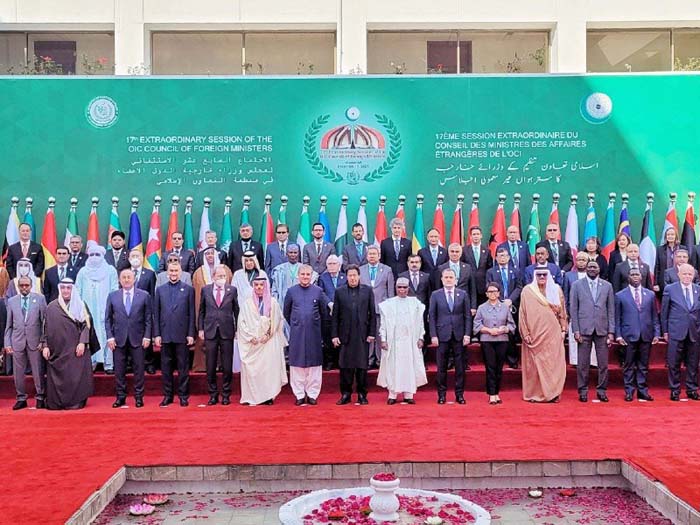
OIC meeting seeks world support for Afghanistan
Islamabad: A one-day summit of the Organization of Islamic Cooperation in Islamabad this week warned that the whole region would suffer in case of an economic collapse of Afghanistan.
The new Taliban acting Foreign Minister Amir Khan Muttaqi was also in attendance in the grand hall of the Pakistani Parliament, where OIC had gathered.
The economic collapse of Afghanistan, already teetering dangerously on the edge, would have a “horrendous” impact on the region and the world, successive speakers have warned at the start of a one-day summit of foreign ministers from dozens of Islamic countries.
The hastily called meeting of the Organization of Islamic Cooperation in Islamabad brought together dozens of foreign ministers with the special representatives on Afghanistan of major powers, including China, the US and Russia on Sunday.
The gathering also included the UN undersecretary general on humanitarian affairs as well as the president of the Islamic Development Bank Muhammad Sulaiman Al Jasser, who offered several concrete financing proposals.
He said the IDB can manage trusts that could be used to move money into Afghanistan, jumpstart businesses and help salvage the deeply troubled economy.
The dire warnings called for the US and other nations to ease sanctions, including the release upward of $10 billion in frozen funds following the Taliban takeover of Kabul on August 15.
Speakers also called for a quick opening of the country’s banking system and collectively, with the United Nations and international banking institutions, assistance to Afghanistan.
Prime Minister Imran Khan directed his remarks to the US, urging Washington to drop preconditions to releasing desperately needed funds and restarting Afghanistan’s banking systems.
“This gathering is about the Afghan people,” said Foreign Minister Shah Mahmood Qureshi, who warned that without immediate aid, Afghanistan was certain to collapse.
He said it would have “horrendous consequences,” not just in Afghan lives lost to starvation and disease, but would most certainly result in a mass exodus of Afghans. Chaos would spread, he predicted, and allow terrorism and the drug trade to flourish.
Martin Griffiths, the UN undersecretary for humanitarian affairs and emergency relief coordinator, warned that Afghanistan will not survive on donations alone.
He urged donor countries to show flexibility, allowing their money to pay salaries of public sector workers and support “basic services such as health, education, electricity, livelihoods, to allow the people of Afghanistan some chance to get through this winter and some encouragement to remain home with their families.”
Beyond that, Griffiths said, “we need constructive engagement with the de facto authorities to clarify what we expect from each other.”
Griffiths said families simply do not have the cash for everyday purchases like food and fuel as prices soar. The cost of fuel is up by around 40 percent, and most families spend 80 percent of their money just to buy food.
“Universal poverty may reach 97 percent of the population of Afghanistan. That could be the next grim milestone,” he warned.
Next year the UN would be asking for $4.5 billion in aid for Afghanistan – it’s single largest humanitarian aid request, he said.
